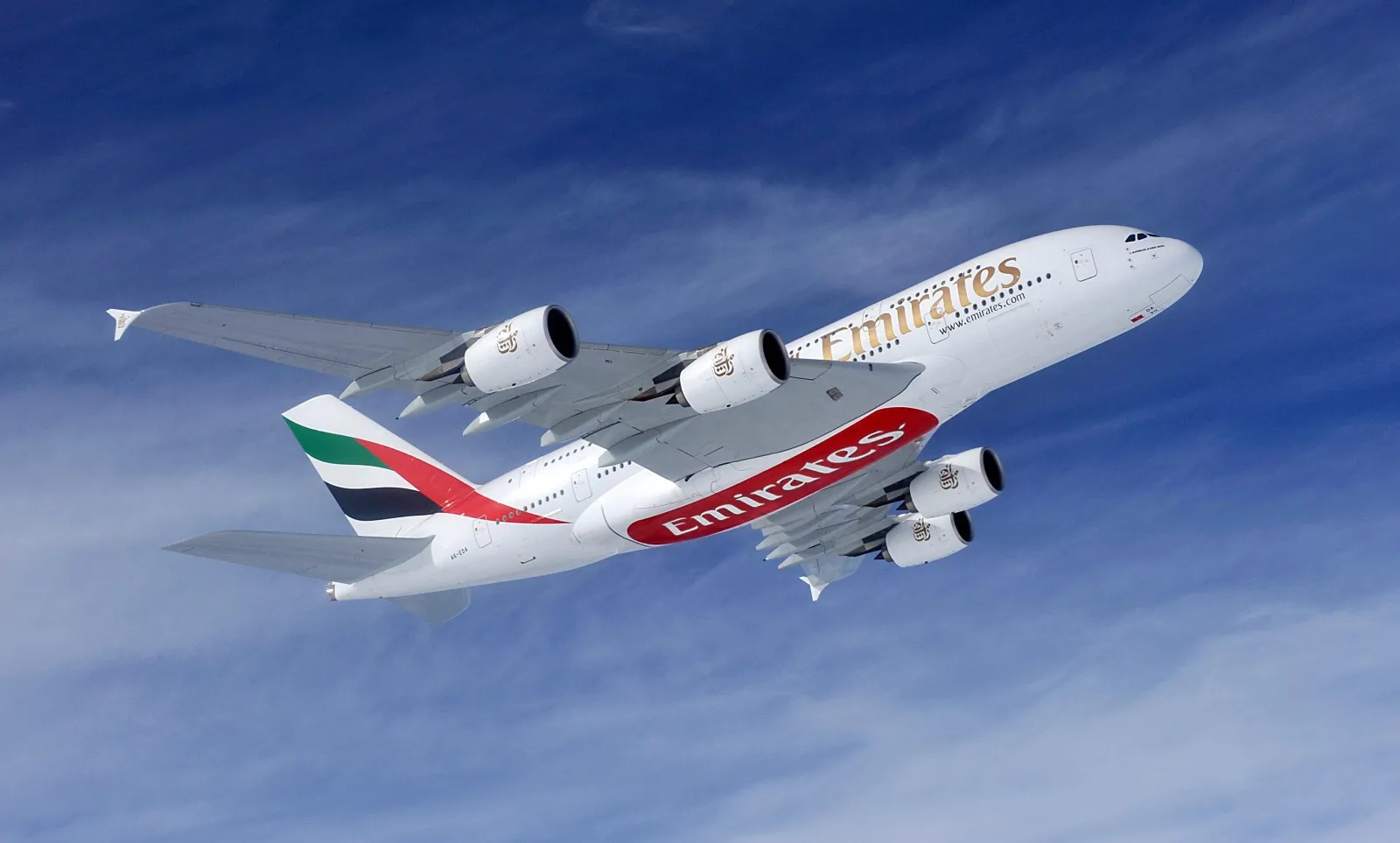
Emirates first A380 to be recycled
Nov 02, 2021

Emirates has initiated the recycling process for its first Airbus A380, marking a significant milestone in sustainable aviation practices. This aircraft, which has been a symbol of luxury travel since its introduction, will undergo a careful disassembly to recover valuable materials and components. The recycling effort aims to minimize waste and promote environmental responsibility within the aviation industry. Key materials such as aluminum and composite parts will be processed for reuse, while other systems will be salvaged for refurbishment. This initiative reflects Emirates' commitment to sustainability and sets a precedent for future aircraft recycling efforts.
The aviation industry is evolving as sustainability becomes a priority. Emirates, one of the leading airlines in the world, has taken a significant step towards environmental responsibility by announcing the recycling of its first A380 aircraft. This move not only highlights the airline's commitment to sustainable practices but also sets a precedent for the industry as a whole. The A380, known for its size and luxury, has been a flagship model for Emirates since its introduction.
Why Recycling the A380 is Important
Recycling aircraft is crucial for several reasons. Firstly, it reduces the environmental impact of aviation by ensuring that materials are reused rather than ending up in landfills. The A380, being a large aircraft, contains a significant amount of materials, including aluminum, steel, and composite materials, all of which can be recycled. This process not only conserves natural resources but also reduces emissions associated with manufacturing new materials.
The Process of Aircraft Recycling
The recycling process for an A380 involves several stages, including:
- Decommissioning: The first step is to safely decommission the aircraft. This involves removing hazardous materials and ensuring that any remaining fuel is safely drained.
- Disassembly: Once decommissioned, the aircraft is disassembled. Components such as engines, landing gear, and avionics are removed for refurbishment or recycling.
- Material Recovery: After disassembly, the aircraft's structure is processed to recover valuable materials. This may involve shredding the aluminum fuselage and sorting the materials for recycling.
Benefits of Recycling for Airlines
The decision to recycle aircraft like the A380 brings numerous benefits to airlines, including:
| Benefit | Description |
|---|---|
| Cost Savings | Recycling components can significantly reduce costs associated with purchasing new materials and parts. |
| Environmental Impact | Recycling reduces waste and lowers the carbon footprint of the airline, contributing to a greener planet. |
| Brand Image | Airlines that prioritize sustainability enhance their brand image and appeal to environmentally conscious travelers. |
Emirates' Commitment to Sustainability
Emirates has long been recognized for its commitment to sustainability. The airline has implemented various initiatives aimed at reducing its environmental footprint. Some notable efforts include:
- Fuel Efficiency: Emirates has invested in modern, fuel-efficient aircraft to reduce emissions per passenger.
- Waste Management: The airline has established waste management programs to minimize waste generated during flights.
- Community Engagement: Emirates actively engages with communities and stakeholders to promote environmental awareness and conservation efforts.
Future of Aircraft Recycling
The recycling of the first Emirates A380 is a significant milestone, but it also foreshadows a larger trend in the aviation industry. As more airlines recognize the importance of sustainability, we can expect to see an increase in aircraft recycling programs. This shift will not only benefit the environment but also encourage innovation in recycling technologies and practices.
Conclusion
In summary, the recycling of Emirates' first A380 aircraft highlights a vital step toward a more sustainable future in aviation. As the industry grapples with the challenges of environmental impact, initiatives like this pave the way for more responsible practices. Airlines that embrace recycling and sustainability will not only contribute to protecting the planet but will also position themselves as leaders in an increasingly eco-conscious market. By prioritizing sustainability, Emirates sets an example for other airlines to follow, ultimately benefiting both the industry and the environment.
Related Articles

Explore Thailand: The Best Islands to Visit for Paradise, Adventure, and Relaxation

The Ultimate Guide to the Best Islands in Thailand for Your Next Getaway

Do babies need passports? How to get a passport for a newborn

How to get a U.S. passport fast: here’s how to expedite the process

What is Mobile Passport Control: 5 reasons why you should use it

SENTRI vs. Global Entry: A detailed guide

Do you need a passport to go to the Bahamas? Let’s find out

Do you need a passport to go to Mexico? A detailed guide

Do you need a passport to go to Canada? We got the answer

Do You Need a Passport for a Cruise: An Essential Travel Guide

Booster Seat Requirements: All the Rules to Follow in Your Rental Car

What Are the World’s Most Powerful Passports, and How Does Yours Rank?

How to Take a Passport Photo at Home: A Helpful Guide

You've got to have heart! Southwest's new livery

Your opinion: Should water be free on low cost carriers?

Young women bolder than guys as solo travellers
